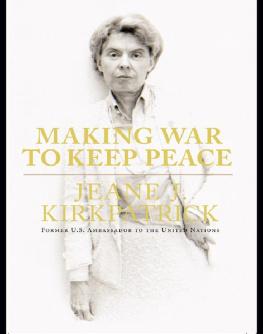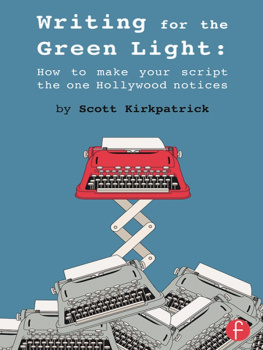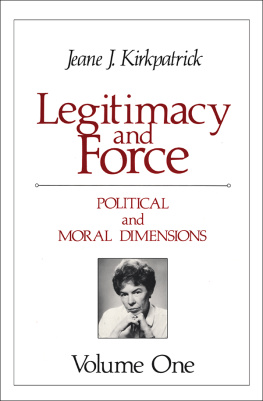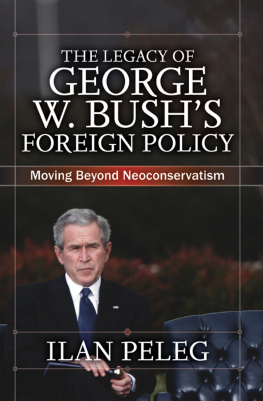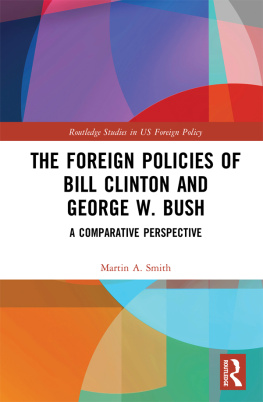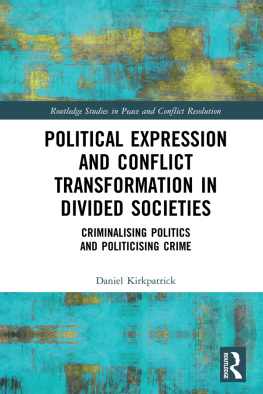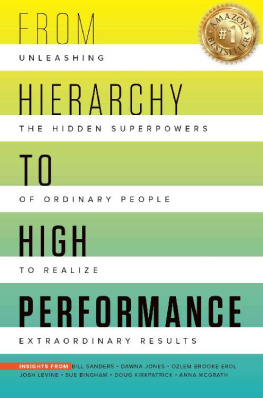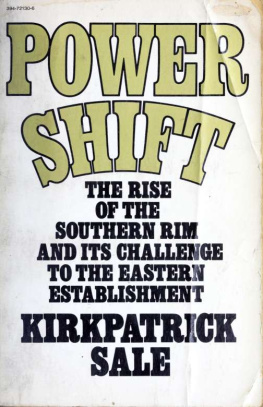Jeane J. Kirkpatrick
The end of the cold war, which began with the dramatic fall of the Berlin wall in 1989, freed the United States and Western Europe from a major military threat for the first time since Hitler marched into Poland, Austria, and Czechoslovakia before the outbreak of World War II. It was, as former Soviet president Mikhail Gorbachev described, our common victory.1 Freedom and democracy swept Eastern Europe, enabling Western Europe to concentrate on the construction of a united Europe, on other new alliances, and on the creation of new patterns of international politics, and that is what they have done.
For a brief period, Americans found themselves deeply involved in the world at a time of relative peace, where no imminent catastrophe and no powerful enemy threatened our civilization. Or so we thought. This new era for Americans did not include a need for new foreign policy goals.
At a fundamental level, however, U.S. foreign policy goals remained unaffected by the end of the cold war. Our commitment had always been to the spread of democracy in the world. We had been promoting development, peace, and prosperity worldwide all along. Contrary to popular impression, we had never really been consumed by the sole task of containing the former Soviet Union.
Even during the cold war, in accordance with our fundamental goals and values, we had worked to foster peace between Israel and her Arab neighbors; sought to prevent dominance of the Persian Gulf by a hostile power; and supported the survival of Taiwan, the freedom of Afghanistan, and the end of apartheid in South Africa. We had concerned ourselves with rising living standards, expanding exports, promoting world trade, and discouraging human rights violations in China, Burma, North Korea, and elsewhere. We had labored to prevent aggression and proliferation of nuclear technology, to resolve regional conflicts, and to end wars. All of these were important goals of U.S. policy throughout the cold war.
Dealing with the Soviet Union and communism had been our most urgent task because only the Soviet Union had the power and the will to dominate significant numbers of other nations. Communism had been an expanding imperial tyranny, and Marxism, the most powerful intellectual paradigm of the century, provided its justification. The United States and its NATO allies were seen by the Soviet Union as an obstacle to the achievement of Soviet goals. The urgent task of containing this national power was the focus of much attention, and most American goals in the postcold war world are those we pursued during the cold war. But we never sought to conquer the world or the USSR itself. We never threatened to bury them. There never were two superpowers locked liked scorpions in a bottle in a twilight struggle to a bitter end.
During and after the cold war, three goals and values have provided the foundation for U.S. policy. The first goal was, is, and, I think, should be to preserve our own freedom, independence, and well-being. This requires preserving the integrity of our institutions and maintaining a capacity to defend the United States itself from potential adversaries and the weapons of the era. That is why we badly need an effective defense against missiles.
The second goal of U.S. policy was, is, and should be to help (in ways consistent with our resources) to preserve and to expand the number and vitality of democratic governments in the world, because they share our civilization, respect the rights of their own citizens and neighbors, and contribute to the sum of peace and well-being in the world.
The third goal of American foreign policy was, is, and should be to prevent (or help to prevent) violent expansionist leaders from gaining control of the governments of major states.
While geographic, economic, demographic, and historical factors influence the policies of governments, ultimately a nations foreign policy flows from the character of its regime, its culture, and the purposes of its political elite. Those purposes reflect the principles, beliefs, habits, values, and goals of its political class.
We have had ample opportunity in this century of wars and revolutions to observe what happens when violent elites, who espouse coercive ideologies, gain access to the resources of states. They start with murder and denial of freedom in their own states, and move on to war, which may spill over to their neighbors and sometimes to genocide.
Under Joseph Stalins dictatorship, the deadly purge period in the Soviet Union was directed first at his citizens; then his tyranny turned outward and spread to the Baltic and Eastern European states. The stateless Osama bin Ladens al Qaeda and its allied groups continue to kill and wreak havoc in the United States, Europe, and the Middle East.
It is important to recall that each of the violent antidemocratic movements of the century came as a surprise: Bolshevism, Fascism, Nazism, Chinese Communism (especially its Cultural Revolution), the killing fields of Cambodia, and the fanatical ayatollahs. Each shocked an unsuspecting, disbelieving world with its explosive violence and aggressive policies. Each was led by new men unknown to the then dominant political class. No one knew where or when the next violent leader or movement might appear. Could the Federal Republic of Germany or any other country in Europe breed a group as violent, obsessive, and skilled in the achievement of power as the Nazis? I dont think so. Could a transitional Russia prove the birthing room for a movement as violent and as skilled in uses of power as the Bolsheviks who abruptly terminated Russias transitional democracy of 1917? I dont think so. Could an aggressive, expansionist, violent leader in Serbia unleash mass murder once again in the very heart of Europe? It has already happened. However, in this century, not all the surprises have been bloody or hopeless. Just as no one anticipated any of the previous disasters, no one anticipated the sudden abandonment of Marxism or turn to democracy and free markets in Central and Eastern Europe and elsewhere. As President Ronald Reagan articulated, It is the march of freedom and democracy which will leave Marxism-Leninism on the ash heap of history as it has left other tyrannies which stifle the freedom and muzzle the self-expression of the people.2 Seven years after this statement, his words came true.
We cannot protect ourselves or others against the resurgence of aggressive powers or the reoccurrence of evil unless we face the fact that tyranny and war have the same source in persons who use force to expand their control of others . These individuals use force to gain power inside and outside their own countries. When would-be dictators manage by one means or another to get to the top of government, they seek to bend that governments resources to their own purposes to malevolently maximize their own power. They destabilize existing institutionsoften ruthlesslyand create wars. The evidence against these interlopers has been plentiful in this century. We have watched expansionist dictatorships make war in Europe and Asia. We have seen the ambitions of Saddam Hussein exposed in his wars against his people and his neighbors. We have the legacy of Slobodan Miloevis ceaseless efforts to extend his own power by expanding Serb control over the whole of the former Yugoslavia. We continue to confront the Taliban in Afghanistan.

